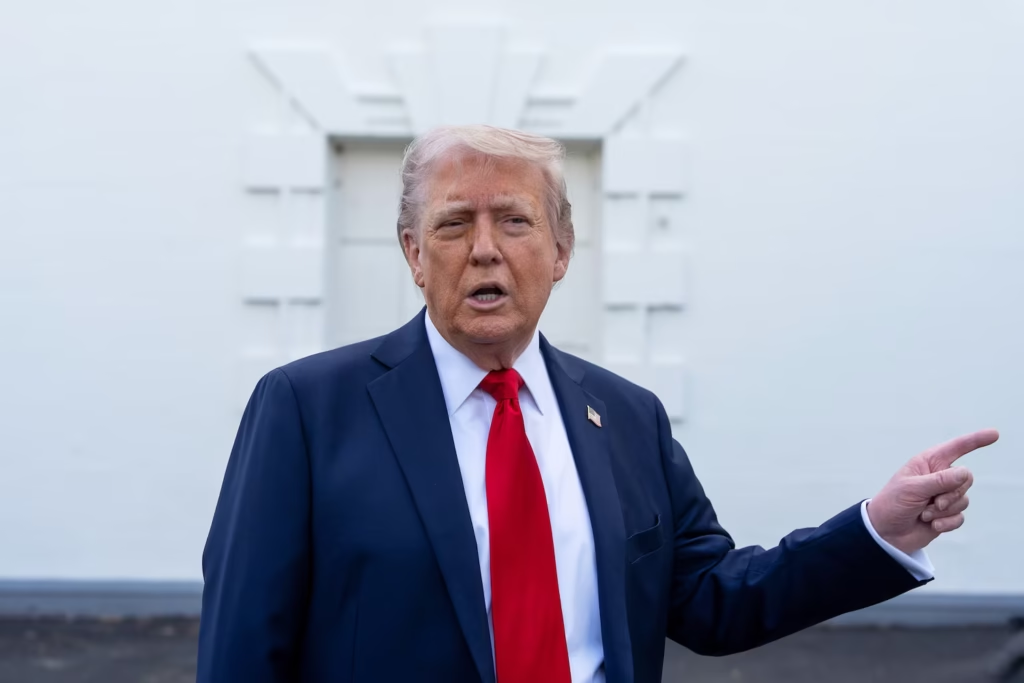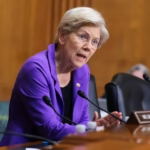WASHINGTON, D.C. — Tensions between Democratic lawmakers and major law firms reached a boiling point on Thursday morning when a group of 15 Democratic representatives sent letters to nine high-profile law firms. The letters, addressed to firms including Kirkland & Ellis LLP, Latham & Watkins LLP, and Simpson Thacher & Bartlett LLP, questioned the legality and ethical ramifications of recent agreements between these firms and the Trump administration. The agreements, which involve nearly $1 billion in pro bono services, have raised serious concerns among lawmakers who believe the deals may violate federal bribery, extortion, and racketeering laws.
The controversy centers on a series of legal arrangements announced by former President Donald Trump earlier this spring, in which prestigious law firms agreed to provide pro bono services in exchange for the reversal of executive orders issued by the Trump administration or to avoid being targeted by the government in future actions. In these deals, the firms also reportedly agreed to exclude diversity, equity, and inclusion considerations from their hiring practices, opting instead for “Merit-Based Hiring, Promotion, and Retention.”
California Democratic Rep. Dave Min and Maryland Democratic Rep. April Delaney, who spearheaded the letter campaign, are leading the charge in raising questions about the nature of these agreements. The letters express concerns about the potential abuse of federal power and its implications for the legal profession. They also seek detailed information from the law firms about the motivations behind the agreements, the specifics of the terms, and whether the deals comply with state bar ethics requirements.
The firms involved in the controversy include some of the most prestigious and influential law firms in the country. These include Kirkland & Ellis, Latham & Watkins, Allen & Overy, Shearman & Sterling, Skadden, Arps, Slate, Meagher & Flom, Willkie Farr & Gallagher, Paul, Weiss, Rifkind, Wharton & Garrison, Cadwalader, Wickersham & Taft, and Milbank. The Democratic lawmakers have requested that the firms respond to their inquiries by May 8, providing details on how the agreements were formed, what terms were agreed upon, and whether any coercion was involved.
The controversy has caught the attention of both legal and political observers. The primary concern raised by the lawmakers is the potential for these agreements to be seen as a form of legal coercion. According to the Democratic representatives, the agreements could represent a form of “economic coercion” in which law firms were essentially forced into offering pro bono services in exchange for favorable treatment from the Trump administration. This, they argue, could be a violation of federal laws regarding bribery and extortion.
In the letters, lawmakers cite the example of the Cadwalader, Wickersham & Taft firm, which reportedly agreed to provide $100 million in pro bono services to the Trump administration. This law firm, a former employer of Deputy Attorney General Todd Blanche, has come under particular scrutiny due to its ties to the administration. Critics have raised concerns about the potential conflict of interest and whether these deals are part of a larger effort to manipulate the legal profession for political gain.
The letters sent to the law firms also inquire about how these agreements were reached, whether any specific promises were made by the Trump administration, and whether the firms consulted with any ethics committees or legal advisors before entering into these deals. The lawmakers are particularly concerned about the potential implications for state bar ethics rules, which govern the professional conduct of attorneys and law firms.
In the aftermath of the letters, the Trump administration has defended the agreements, framing them as necessary for advancing the administration’s agenda. The former president himself has boasted about the deals, claiming that law firms were eager to sign on to the agreements. In a statement, Trump said, “Law firms are just saying: ‘Where do I sign? Where do I sign?’ Nobody can believe it.”
Trump’s comments came after he announced the deals on his social media platform, where he highlighted the pro bono work and the commitment of the firms to support his administration’s goals. These agreements, which cover a wide range of legal services, have raised concerns about the potential conflicts of interest and the long-term impact on the legal profession. Critics argue that the deals may undermine the independence of law firms and their ability to provide unbiased legal representation.
For the Democratic lawmakers, the issue is not just about the legality of these agreements but also about the broader implications for the integrity of the legal system. They argue that the Trump administration’s actions represent a dangerous precedent that could lead to further abuses of power. “By entering into an agreement that appears to be in response to the threat of illegal economic coercion against your firm from the Trump administration, your firm is not simply agreeing to provide certain pro bono services or end certain personnel hiring and retention practices,” the letter states. “Agreements of this kind also signal acquiescence to an abuse of federal power, raising serious questions about how or whether your firm would represent clients or take on matters that might be seen as antagonistic to President Trump or his agenda.”
The timing of these revelations is especially significant, as they come amid growing concerns about the Trump administration’s approach to governance and its interactions with the legal profession. Critics argue that the president’s actions have repeatedly sought to undermine legal independence and accountability, especially in relation to investigations and legal proceedings that could impact his administration. With the agreements in question potentially impacting the legal strategies of some of the most powerful law firms in the country, the stakes are high.
The letters sent by the Democratic lawmakers have sparked a broader conversation about the role of law firms in political and governmental matters. Some legal experts argue that the pro bono work being offered by these firms is a normal and accepted practice, while others worry that the agreements could set a dangerous precedent. Legal ethics experts have pointed out that while pro bono work is generally viewed as a public service, it should not come at the cost of compromising the integrity of the legal profession or being used as leverage for political gain.
The controversy has also brought renewed attention to the broader issue of political influence and the relationship between the legal profession and government. While some argue that law firms have a duty to provide legal services to those in power, others warn that such arrangements could lead to conflicts of interest and undermine the public’s trust in the legal system. The ongoing investigation into these agreements will likely continue to generate debate about the appropriate role of law firms in political matters and whether such deals should be allowed to stand.
As the situation continues to develop, both the Trump administration and the law firms involved are under increasing scrutiny. The outcome of this inquiry could have far-reaching implications for the future of legal ethics, political influence, and the independence of law firms in the United States. The lawmakers involved in the investigation are calling for greater transparency and accountability, urging the firms to fully disclose the terms of their agreements and ensure that their actions comply with legal and ethical standards.
For now, the legal community and the public are left to wait for answers. The coming weeks will likely see more revelations, as the investigation into these controversial agreements continues to unfold. As the political ramifications of the Trump administration’s actions continue to play out, the legal profession’s response will be critical in determining the future of the rule of law in the United States.
Note: This article is based on information available as of the publication date. Further updates will be provided as more details emerge.



